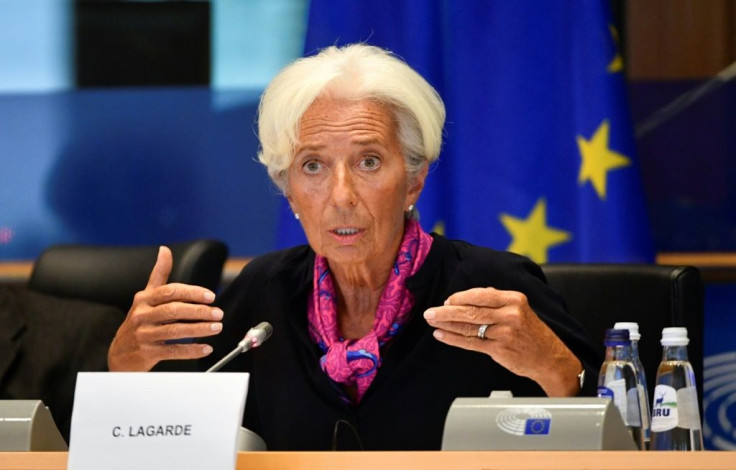Who Is Christine Lagarde: ECB Chief’s Murky Past Includes Negligence Conviction

Christine Lagarde, who made her debut as the new president of the European Central Bank on Thursday, has a very controversial past.
In December 2016, while Lagarde served as chief of the International Monetary Fund, a judge in a French court convicted her of negligence in a huge government payout made to a controversial French businessman named Bernard Tapie.
However, the judge decided not to impose a yearlong jail sentence.
Moreover, the conviction would not even tarnish her with a criminal record. The IMF board itself gave Lagarde its full support despite the guilty verdict – meaning she could keep her job.
“The executive board looks forward to continuing to work with the managing director to address the difficult challenges facing the global economy,” the board said in a statement at the time.
Lagarde insisted she did nothing wrong and acted in the public’s best interest.
Even the public prosecutor Jean-Claude Marin admitted the evidence against her was “weak” and suggested Lagarde’s actions were politically motivated and not of a criminal nature.
The complex Tapie case entangled Lagarde when she served as finance minister under President Nicolas Sarkozy between 2007 and 2011 prior to assuming the helm at the IMF.
The Tapie saga began in 1993 when he was appointed to a government ministry and had to sell his majority stake in sportswear firm Adidas to Crédit Lyonnais, a bank that was then partly owned by the French government to avoid any conflict of interest.
But after Crédit Lyonnais later sold his share at a higher price than he originally received, Tapie accused the bank of defrauding him by undervaluing his holdings.
The case dragged on in French courts for years until 2007 when new president Sarkozy’s government established an independent arbitration panel to settle the matter.
The following year, with Lagarde as finance minister, that panel agreed to award Tapie more than €400m (now $448 million) – a decision Lagarde did not appeal. Following an outcry from the public and lawmakers, Lagarde insisted the payout was made according to the law and included damages for Tapie’s family.
French media reported at the time that the payout might have been ordered by Sarkozy in exchange for Tapie’s support for his presidential campaign.
By 2014, when Lagarde led the IMF, she was placed under formal investigation by a French court.
In late 2015, an appeals court ruled Tapie had to pay back the €403 million he received from the French government.
One year later, Lagarde, again as IMF chief, appeared in a Paris court and was found guilty of negligence.
In May 2017, Tapie lost his final appeal as the court ordered him to repay the €403 million.
This past summer, in another extraordinary development, Tapie was acquitted on charges of defrauding the state.
The Paris criminal court said it found "nothing in the case that confirmed" the allegation that the arbitration payout was tainted by “fraud.”
© Copyright IBTimes 2024. All rights reserved.





















